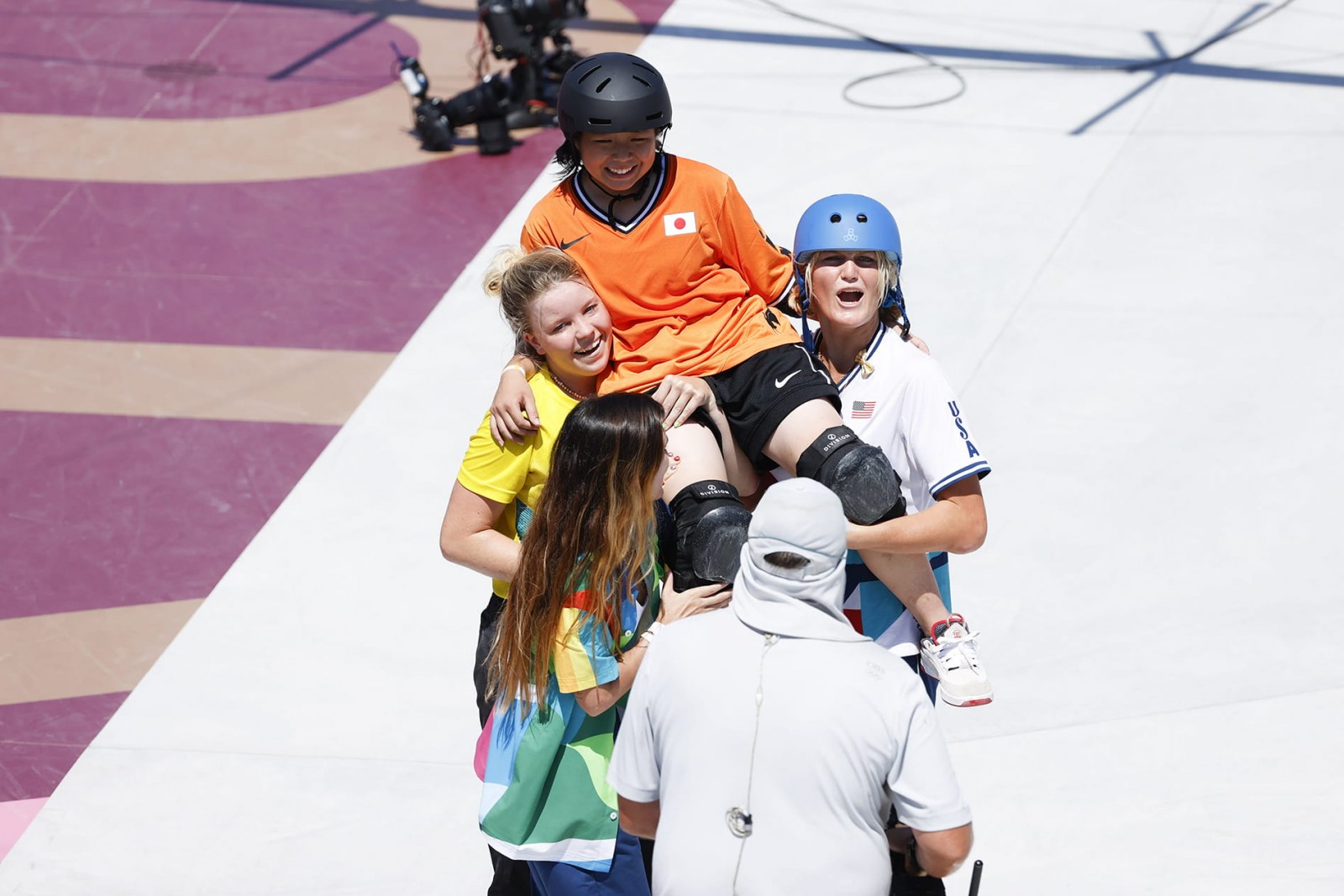The September 2013 announcement in Buenos Aires that Tokyo had been chosen to host the 2020 Summer Games was greeted with great excitement in Japan. Who could have imagined then how Tokyo 2020 would actually turn out?
In March 2020, a formal decision was made to postpone the Olympic and Paralympic Games for a year, as rising global COVID-19 infections made hosting the Games in a “complete form” impossible. As it turned out, cases were even higher a year later, but this time the tournament went ahead as scheduled—largely without spectators and against the wishes of an overwhelming majority of surveyed residents. As soon as the Games were over, though, many of the same people expressed delight at having hosted a moving and memorable spectacle.
Tokyo 2020 was beset by a number of other complications, but the above more or less sums up the major events leading up to and following the first Games held in the midst of a pandemic.
The chorus of “All’s well that ends well” heard around the nation in the wake of the tournament, though, has a hollow, cacophonous ring to my ears. The reason is that, along with the quest for the staging of the Games in a “complete form” and the subsequent popular backlash, the views expressed all appear to be overlooking one key consideration: Olympism.
Olympism is integral to the Olympic movement, as evidenced by its seven Fundamental Principles being cited at the beginning of the Olympic Charter. It is a “philosophy of life,” the Charter notes.” This “requires mutual understanding with a spirit of friendship” with its goal being to place sports “at the service of the harmonious development of humankind, with a view to promoting a peaceful society.”
In other words, while ostensibly featuring world-class sports competition, the Games are much more than just contests of athletic prowess; they have the added goal of advancing Olympism—unlike world cups and world championships, which are events held primarily to determine the best competitors in each sport. My hunch, though, is that few people in Japan viewed Tokyo 2020 as an opportunity to promote the “harmonious” and “peaceful” development of society.
The desire for a “complete form” expressed by the organizers no doubt referred merely to the staging of all competitive events with spectators and the backing of corporate sponsors, not to any contributions the congregation of athletes and officials from around the world at the Games could make to building a more peaceful world.
Even if the initial decision to postpone Tokyo 2020 had been made with a view to facilitating exchange and promoting friendship among national delegations, the public’s calls for the Games to be postponed or canceled a year later were unlikely to have been motivated by the difficulty of nurturing Olympism under pandemic conditions.
The justification given by the organizers and political leaders in response to such public criticism was that every precaution would be taken to ensure a safe and secure tournament. While such measures are certainly crucial during a pandemic, little thought was evidently given to the impact they would have on curtailing exchange among athletes and spectators from around the world.
The many positive comments heard following the Games were, moreover, likely in reaction to either highly memorable moments witnessed during athletic competition or to Tokyo’s successful hosting of an international sports spectacle under difficult conditions, not to being stirred by exalted demonstrations of the spirit of Olympism.
A case in point was a moving scene involving a 15-year-old Japanese skateboarder, who slipped from first to fourth place after she fell attempting a difficult trick in her final run, prompting skaters from other countries to hoist her on their shoulders. Commentators were heard remarking that such a display of camaraderie was no doubt because skateboarding was a new Olympic event or that it represented an emerging trend in the history of the Games. They were obviously unaware that far from being “new,” fellowship among competing athletes is a core and distinguishing principle on which Olympism is built.
One major difference between Tokyo’s first and second Olympics was the presence of professional athletes at the latter. While this rule change has enabled the participation of the world’s top competitors, it has also been criticized as abetting commercialism. To be sure, commercialism may be incompatible with amateurism, which was strictly enforced at the 1964 Games. But that is not necessarily so with Olympism. After all, a sporting event of this scale cannot be held today without some form of commercialism. The participation of professional, star athletes can be a tremendous asset, moreover, if they play a role in advancing the cause of Olympism. Of course, if they are uninterested in promoting world peace and friendship and simply to want to become the best in their respective sports, they can focus their time and energy on world championships and world cups.
An Olympics without Olympism was disappointing not just for falling short of a “complete form” but also for depriving the host city and nation of an opportunity to experience the thrill of fully engaging in a festival of peace and friendship. The fact that commercialism has been made a scapegoat for all the ills of the modern Olympics is also disconcerting, for without it, the popularization and development of sports would not have been achieved to this extent. My hope is that people’s interest in sports can be sustained even after experiencing an Olympics devoid of the ideals of Olympism.
Translated by the SSF from an article published in Japanese on November 17, 2021.

Toshiya Inoue
Professor, Career Education Center, Otsuma Women’s University
Président, La Société Franco-Japonaise de Gestion
Joined Nippon Telegraph and Telephone Public Corporation (now Nippon Telegraph and Telephone Corp.) in 1984 and mainly worked in sales, planning, and international operations at various NTT Group companies. Joined Otsuma Women’s University in 2010, where he is now involved in the planning and operation of the Otsuma Management Academy. Areas of expertise include sports management, marketing, and the information industry. Is a steering committee member of the Japan Society of Sports Industry.


